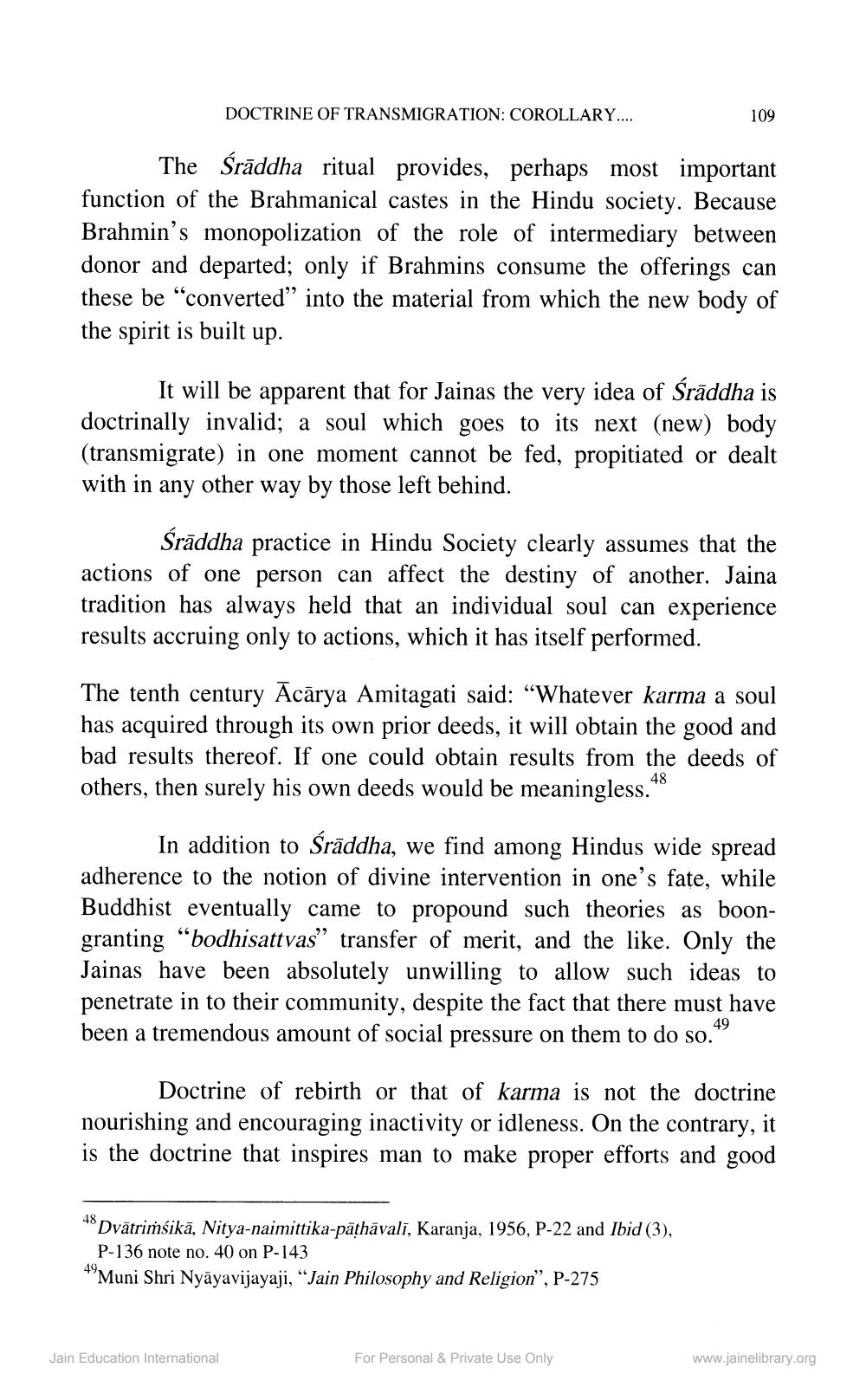________________
DOCTRINE OF TRANSMIGRATION: COROLLARY....
109
The Srāddha ritual provides, perhaps most important function of the Brahmanical castes in the Hindu society. Because Brahmin's monopolization of the role of intermediary between donor and departed; only if Brahmins consume the offerings can these be "converted” into the material from which the new body of the spirit is built up.
It will be apparent that for Jainas the very idea of Śrāddha is doctrinally invalid; a soul which goes to its next (new) body (transmigrate) in one moment cannot be fed, propitiated or dealt with in any other way by those left behind.
Śrāddha practice in Hindu Society clearly assumes that the actions of one person can affect the destiny of another. Jaina tradition has always held that an individual soul can experience results accruing only to actions, which it has itself performed.
The tenth century Ācārya Amitagati said: “Whatever karma a soul has acquired through its own prior deeds, it will obtain the good and bad results thereof. If one could obtain results from the deeds of others, then surely his own deeds would be meaningless. 48
In addition to Śrāddha, we find among Hindus wide spread adherence to the notion of divine intervention in one's fate, while Buddhist eventually came to propound such theories as boongranting “bodhisattvas” transfer of merit, and the like. Only the Jainas have been absolutely unwilling to allow such ideas to penetrate in to their community, despite the fact that there must have been a tremendous amount of social pressure on them to do so."
Doctrine of rebirth or that of karma is not the doctrine nourishing and encouraging inactivity or idleness. On the contrary, it is the doctrine that inspires man to make proper efforts and good
**Dvåtrimśikā, Nitya-naimittika-pāthāvali, Karanja, 1956, P-22 and Ibid (3),
P-136 note no. 40 on P-143 Muni Shri Nyāyavijayaji, “Jain Philosophy and Religion”, P-275
Jain Education International
For Personal & Private Use Only
www.jainelibrary.org




